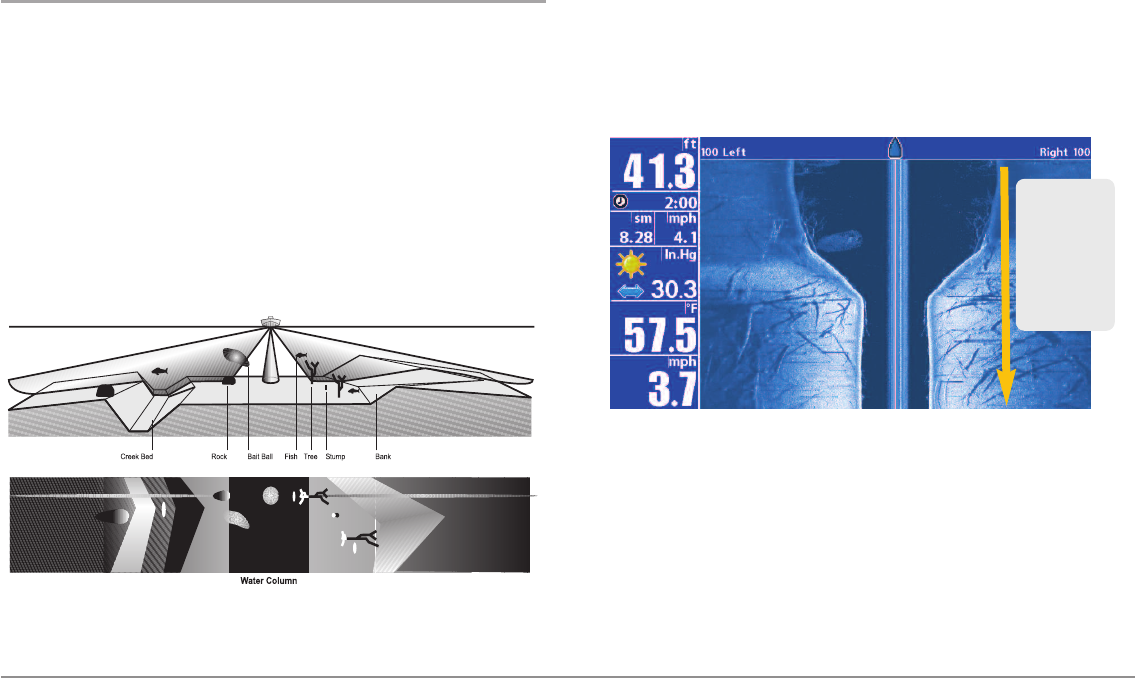
49
What’s on the Side Imaging® Display
Understanding the Side Imaging® Display
It is important to understand how Side Imaging® technology produces the
display. The images you see on the display are produced using sonar
technology. The special transducer projects three distinct beams – one beam
facing down and two beams pointing out to the side.
Down Beam is aimed directly below the boat and provides conical
coverage.
Side Beams are aimed at right angles to the path of the boat. The
side beam coverage is very thin from front to back, yet very wide top
to bottom. The narrow aspect (front to back) of the beam illuminates
a small strip of the bottom perpendicular to the direction of the boat.
Each time the unit pings, a strip of data representing all the echoes
received by the transducer are put together on the display to form
the image that you see.
The rows closest to the boat icon at the top of the view are the
most recent sonar data. The information is scrolled down the screen
as new data, drawn at the top of the screen, becomes available.
The main benefit of Side Imaging® sonar to anglers is that it provides an
overall survey of a large area of water. This gives you a better understanding
of the bottom topography and how structure is oriented for more efficient
fishing.
Saltwater anglers pick up precise details of popular fishing structure like
wrecks, reefs, humps and drop-offs, as well as being able to spot bait balls
in open water. Freshwater anglers can see fish-attracting structure such as
timber, stumps, rocks and creek beds.
Side Imaging
Sonar echoes are
first displayed at
the top of the
screen, and
historical data
scrolls down the
display as new
information is
received.
Side Imaging® Representation
As the unit pings, a strip of data is displayed at the top of the Side Imaging® view.


















